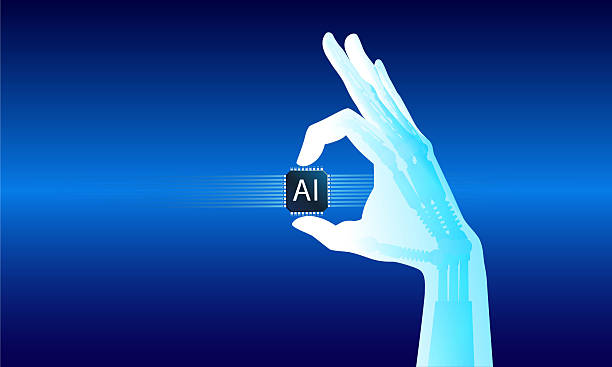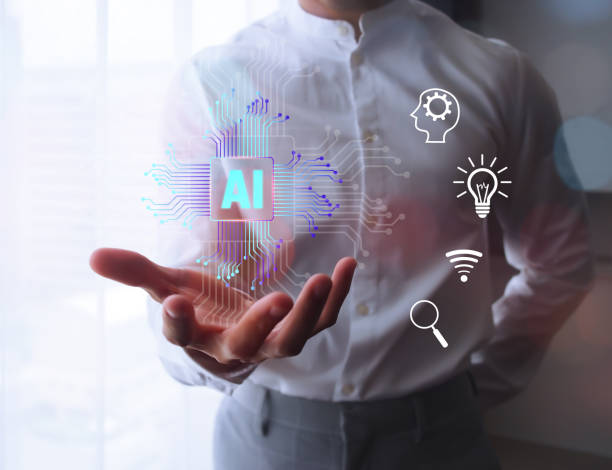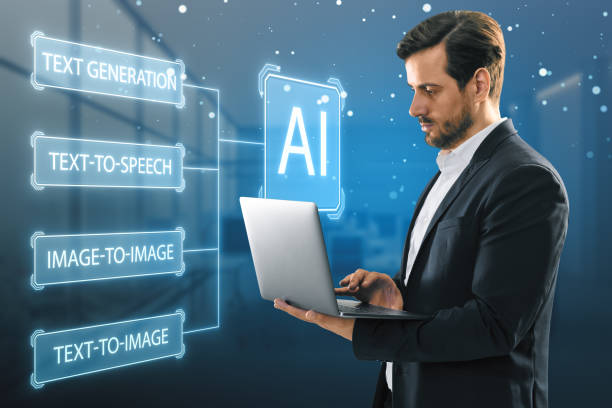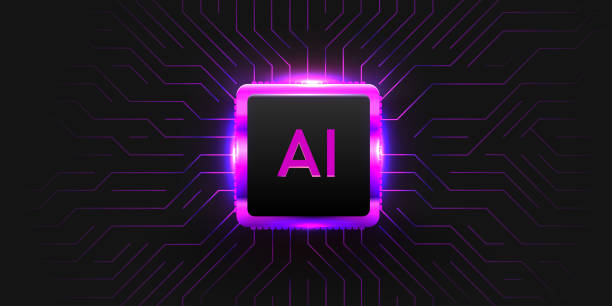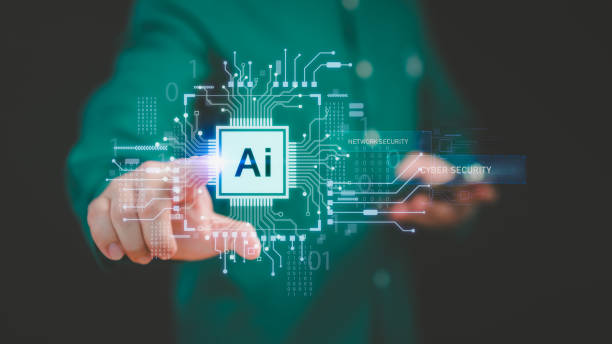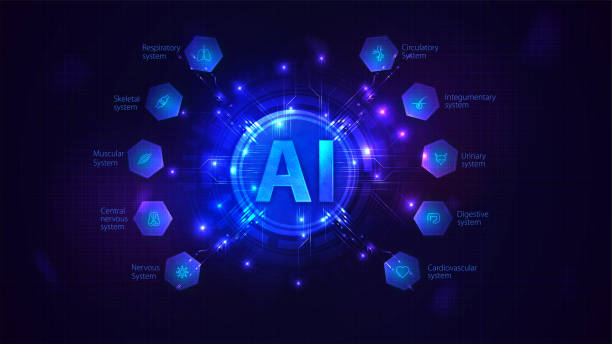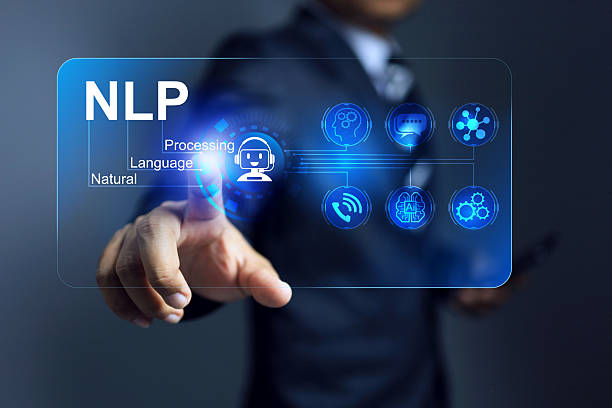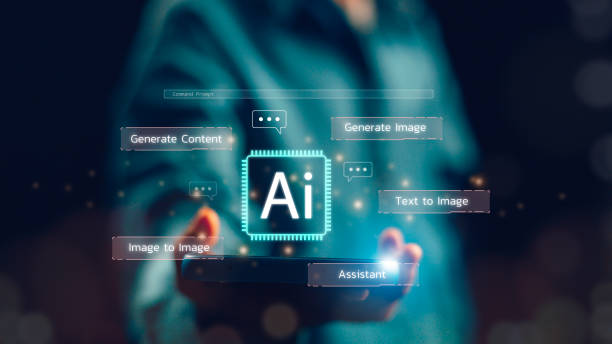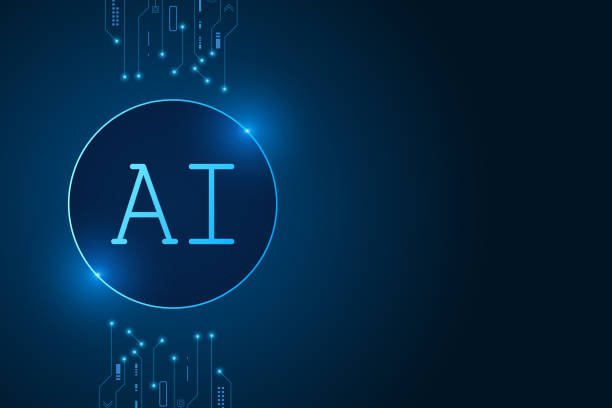What is Artificial Intelligence and How is it Transforming the World of Work?
What is Artificial Intelligence and How is it Transforming the World of Work?
Artificial intelligence (AI) is rapidly becoming a transformative force across industries.
AI involves the development of computer systems that can perform tasks that typically require human intelligence, such as learning, problem-solving, and decision-making.
Machine learning algorithms, natural language processing, and computer vision are just a few examples of AI technologies that are currently redefining the job landscape.
These technologies enable the automation of routine tasks, increase productivity, and create new job opportunities.
The future of work with AI is increasingly linked to automation.
While some job roles may become obsolete, AI can create new opportunities and increase the demand for new skills.
Companies will be looking for people who can develop, implement, manage, and maintain AI systems.
Understanding the impact of AI on the job market is essential for individuals and organizations to prepare for the future.
This includes acquiring the necessary skills, adapting to new job roles, and understanding how to use AI to increase productivity and creativity.
AI is increasingly penetrating various industries, including healthcare, finance, manufacturing, and transportation.
This has led to significant changes in the nature of jobs and the need for new skills.
Does your company’s website perform as it should for your brand? In today’s competitive world, your website is your most important online tool. Rasaweb, a specialist in professional corporate website design, helps you to:
✅ Attract credibility and customer trust
✅ Convert website visitors into customers
⚡ Get a free consultation!
New job roles created by AI
New Job Roles Created by AI
AI not only eliminates old jobs but also creates new job opportunities that did not exist before.
Some of these roles include data scientists, machine learning engineers, AI ethics specialists, and process automation specialists.
Click here to preview your posts with PRO themes ››
Data scientists are responsible for collecting, analyzing, and interpreting data to help organizations make informed decisions.
They use #machine learning algorithms to identify patterns and trends that can be used to improve business performance.
Machine learning engineers develop and implement AI systems.
They are responsible for designing, training, and deploying machine learning models and ensuring that these systems are efficient, accurate, and reliable.
AI ethics specialists help organizations ensure that AI systems are used ethically and responsibly.
They examine issues related to privacy, discrimination, and accountability and provide solutions to mitigate potential risks.
Process automation specialists identify business processes for automation and develop solutions to automate these processes using AI technologies.
The future of work in AI depends on skilled professionals in these fields.
Skills Needed to Succeed in the Age of AI
Skills Needed to Succeed in the Age of AI
To succeed in the age of AI, individuals need to acquire new skills and upgrade their existing skills.
This includes technical skills such as programming, data analysis, and machine learning, as well as soft skills such as critical thinking, problem-solving, and creativity.
Programming is an essential skill for working with AI systems.
Mastery of programming languages such as Python and R is essential for developing and implementing AI algorithms.
Data analysis is essential for interpreting and extracting insights from data.
This includes understanding statistics, data modeling, and data visualization.
Machine learning is a specialized field that involves developing and training algorithms that can learn from data.
In addition to technical skills, critical thinking, problem-solving, and creativity are also becoming increasingly important.
AI can automate routine tasks, but critical thinking and problem-solving are essential for dealing with complex challenges and making strategic decisions.
Creativity is needed to develop innovative solutions and find new ways to use AI.
The future of work in AI depends on people who can combine these skills.
| Skill | Description |
|---|---|
| Programming | Mastery of programming languages such as Python and R |
| Data Analysis | Understanding statistics, data modeling, and data visualization |
| Machine Learning | Developing and training algorithms that can learn from data |
Industries Most Affected by AI
Industries Most Affected by AI
AI is already having a significant impact on various industries, and this impact is expected to increase in the future.
Some of the industries most affected by AI include healthcare, finance, manufacturing, and transportation.
In healthcare, AI can be used to diagnose diseases, develop new treatments, and improve patient care.
AI systems can analyze medical images, review patient data, and provide treatment recommendations.
In the financial industry, AI can be used to detect fraud, manage risk, and provide personalized services to customers.
Machine learning algorithms can identify suspicious transactions, assess credit risks, and provide investment recommendations.
In manufacturing, AI can be used to automate processes, improve quality, and reduce costs.
Robots equipped with AI can perform repetitive tasks, identify defects, and optimize equipment performance.
In transportation, AI can be used to develop self-driving cars, optimize routes, and improve safety.
AI systems can analyze sensor data, predict traffic conditions, and make driving decisions.
The future of work in AI in these industries will be heavily influenced by this technology.
Does your current online store design not generate the expected sales?
Rasaweb specializes in professional online store design!
✅ An attractive and user-friendly site aimed at increasing sales
✅ High speed and security for an ideal shopping experience⚡ Get a free online store design consultation with Rasaweb!
Challenges Facing Widespread Adoption of AI
Challenges Facing Widespread Adoption of AI
While AI has great potential to transform industries and create new job opportunities, there are also challenges that need to be overcome for widespread adoption of this technology.
These challenges include a shortage of skilled professionals, ethical and regulatory concerns, and high implementation costs.
The shortage of skilled professionals is one of the biggest obstacles to the widespread adoption of AI.
Organizations are looking for people who can develop, implement, manage, and maintain AI systems.
However, the number of skilled professionals in this field is limited, and the demand for them is increasing.
Ethical and regulatory concerns are also a significant challenge.
Issues related to privacy, discrimination, and accountability must be seriously addressed to ensure that AI systems are used ethically and responsibly.
High implementation costs can also be a barrier to widespread adoption of AI.
Developing and deploying AI systems can be costly, especially for small and medium-sized organizations.
The future of work in AI depends on the ability to overcome these challenges.
How to Prepare for the Future of Work in AI
How to Prepare for the Future of Work in AI
To prepare for the future of work in AI, individuals need to acquire new skills, upgrade their existing skills, and stay informed of the latest developments in the field.
This includes participating in training courses, earning professional certifications, and networking with industry professionals.
Participating in training courses and earning professional certifications can help individuals acquire the skills needed to work with AI systems.
There are many online courses, workshops, and academic training programs in the field of AI and machine learning.
Networking with industry professionals can also help individuals stay informed of the latest developments in the field and identify new job opportunities.
Attending conferences, exhibitions, and networking events can provide opportunities to meet industry professionals and learn from their experiences.
The future of work in AI depends on the preparedness and adaptability of individuals.
Impact of AI on Traditional Jobs
Impact of AI on Traditional Jobs
AI is having a significant impact on traditional jobs, and some of these jobs are at risk due to automation.
However, AI can also create opportunities for upskilling and changing job roles.
Routine and repetitive jobs are most at risk of automation.
This includes jobs such as data entry, customer service, and manufacturing.
AI can perform these tasks automatically, leading to a reduction in the need for human labor.
However, AI can also create opportunities for upskilling and changing job roles.
For example, customer service employees can be trained to work as technical support specialists, and manufacturing workers can be trained to manage and maintain AI-equipped robots.
The future of work in AI in traditional jobs depends on the ability of individuals to adapt to changes and acquire new skills.
| Job | Impact of AI |
|---|---|
| Data Entry | Complete Automation |
| Customer Service | Partial Automation with Chatbots |
| Manufacturing | Automation with Robots |
The Role of Governments in Managing the Effects of AI on the Labor Market
The Role of Governments in Managing the Effects of AI on the Labor Market
Governments have an important role to play in managing the effects of AI on the labor market.
This includes investing in education, providing financial support to displaced workers, and regulating the use of AI to ensure that this technology is used fairly and responsibly.
Investing in education is essential to preparing the workforce for the future of work in AI.
Governments should provide training programs to help people acquire the skills needed to work with AI systems.
Providing financial support to displaced workers is also an important role for governments.
This can include unemployment benefits, retraining, and job placement services.
Regulating the use of AI is necessary to ensure that this technology is used fairly and responsibly.
Governments should enact laws to protect privacy, prevent discrimination, and ensure accountability of AI systems.
The future of work in AI depends on the actions of governments in these areas.
Still don’t have a company website and are missing out on online opportunities? With professional corporate website design by Rasaweb,
✅ Double your business credibility
✅ Attract new customers
⚡ Free consultation for your company website!
Ethics in AI and Its Impact on the Future of Work
Ethics in AI and Its Impact on the Future of Work
As AI advances, the ethical issues associated with this technology become more important.
These issues include privacy, discrimination, accountability, and responsibility.
Privacy is one of the most important ethical issues related to AI.
AI systems often collect and process a lot of data, which can lead to violations of individuals’ privacy.
Discrimination is also a serious concern.
If AI systems are trained with biased data, they can make discriminatory decisions.
Accountability and responsibility are also important issues.
If AI systems make mistakes, it should be clear who is responsible for the mistake.
The future of work in AI depends on how these ethical issues are addressed.
Organizations must ensure that AI systems are used ethically and responsibly, and individuals must increase their awareness of these issues.
The Future of Work in AI: An Optimistic View
The Future of Work in AI: An Optimistic View
Despite the existing challenges and concerns, the future of work in AI can be bright and promising.
AI has great potential to create new job opportunities, increase productivity, and improve the quality of life.
New job opportunities are emerging in fields such as data science, machine learning, AI engineering, and AI ethics.
Productivity can be increased by using AI to automate routine tasks and increase the efficiency of processes.
Quality of life can be improved by using AI to improve healthcare services, reduce pollution, and solve social problems.
The future of work in AI depends on innovation, adaptability, and preparedness for change.
By acquiring the necessary skills, adapting to new job roles, and understanding how to use AI to increase productivity and creativity, individuals and organizations can benefit from this technology.
The future of work in AI requires a #specialized and #analytical approach.
Frequently Asked Questions
| Question | Answer |
|---|---|
| How will artificial intelligence affect the future job market? | Artificial intelligence will automate repetitive jobs, but at the same time, it will create new and more complex jobs in fields such as development, maintenance, and training of artificial intelligence systems. |
| Which jobs are most at risk of being replaced by artificial intelligence? | Jobs that involve repetitive, rule-based tasks with low demand for creativity or emotional intelligence, such as some manufacturing, data entry, and simple customer service jobs, are most at risk. |
| What skills are essential to succeed in the future of work with the presence of artificial intelligence? | Skills such as critical thinking, complex problem solving, creativity, emotional intelligence, data literacy, the ability to work with artificial intelligence, and lifelong learning are of high importance. |
| Will artificial intelligence cause widespread unemployment? | Some jobs will disappear, but history has shown that new technologies, instead of widespread unemployment, change the shape of the labor market and create new jobs. The need for adaptation and retraining is important. |
| What new job opportunities arise with the emergence of artificial intelligence? | Jobs such as machine learning engineer, data scientist, AI ethicist, human-AI interaction designer, and digital transformation consultant are among the new opportunities. |
| What is the role of education in preparing for the future of work with artificial intelligence? | Education should focus on developing soft skills, computational thinking, digital literacy, and the ability to learn continuously to prepare individuals for future changes. |
| How can I prepare myself for the job market changes caused by artificial intelligence? | You can prepare yourself by learning new skills related to artificial intelligence and data, strengthening soft skills, developing critical thinking and creativity, and getting used to lifelong learning. |
| Will AI ethics become an important career field? | Yes, given the growing concerns about biases, privacy, and automated decision-making of artificial intelligence, the role of AI ethics experts will be critical to ensuring its responsible development. |
| How important is human-AI collaboration in the future of work? | The collaboration between humans and artificial intelligence, instead of competition, shapes the future of the labor market. Artificial intelligence can be a tool to increase productivity and focus humans on more complex and creative tasks. |
| Which industries will be most affected by artificial intelligence? | Almost all industries will be affected, but areas such as healthcare, finance, transportation, manufacturing, education, and customer service are pioneers in the adoption and transformation by artificial intelligence. |
And other services of Rasa Web Advertising Agency in the field of advertising
Smart SEO: A novel service to enhance digital branding by customizing the user experience.
Smart Reportage: A dedicated service for online growth based on attractive user interface design.
Smart Direct Marketing: A dedicated service for growing user engagement based on intelligent data analysis.
Smart UI/UX: A professional solution to increase click-through rates by focusing on SEO-oriented content strategy.
Smart Customer Journey Map: Professional optimization for digital branding using custom programming.
And more than hundreds of other services in the field of internet advertising, advertising consulting, and organizational solutions
Internet Advertising | Advertising Strategy | Advertorial
Sources
What is the impact of artificial intelligence on occupational-social health?
,Report of the publication on increasing jobs with artificial intelligence and other security of it
,Artificial intelligence recreates people’s job market
,What changes does artificial intelligence bring about in the attitude of the labor market?
? Are you ready to transform your business in the digital world? Rasaweb Afarin Digital Marketing Agency paves the way for your success by providing comprehensive services including dedicated website design, SEO and online advertising.
📍 Tehran, Mirdamad Street, next to the Central Bank, South Kazerun Alley, Ramin Alley No. 6

